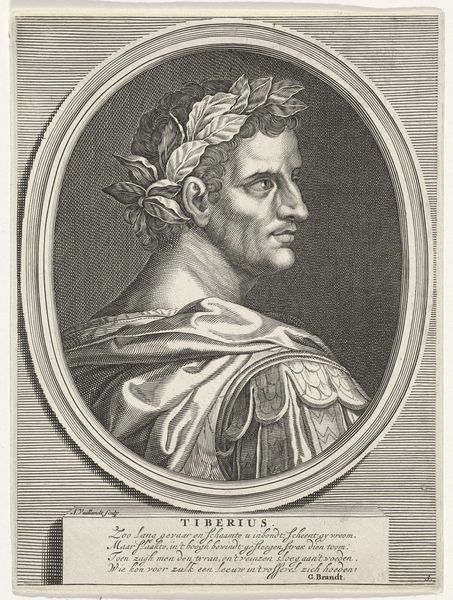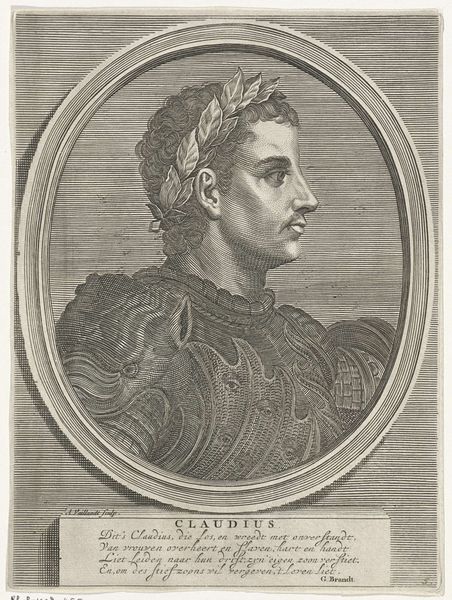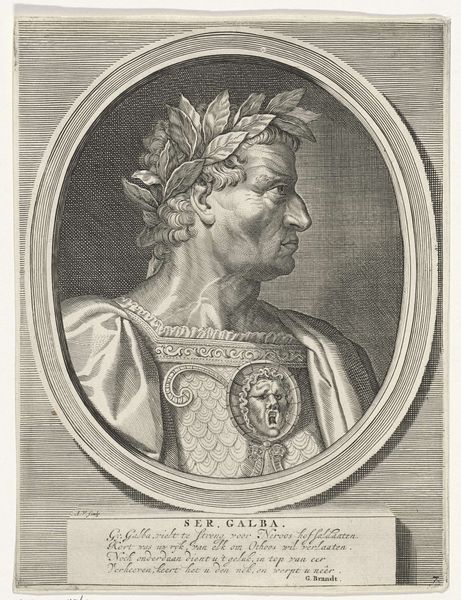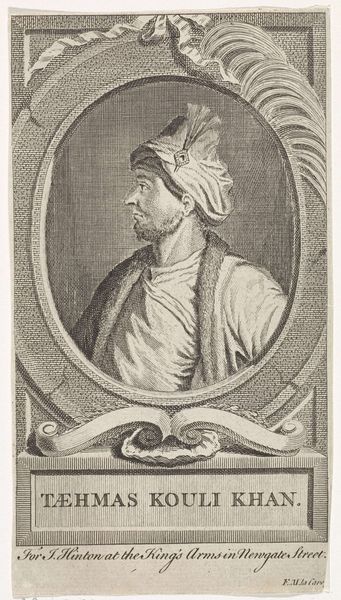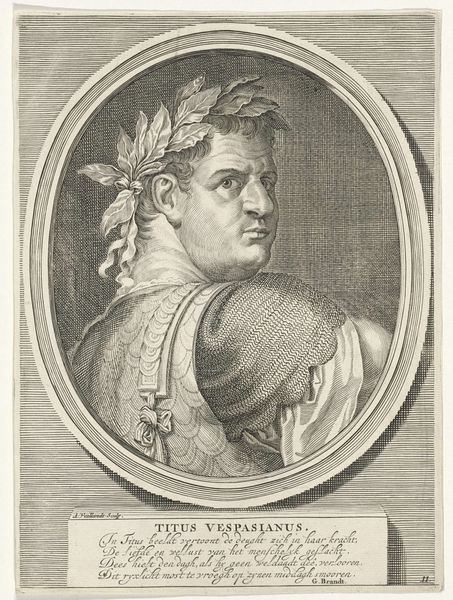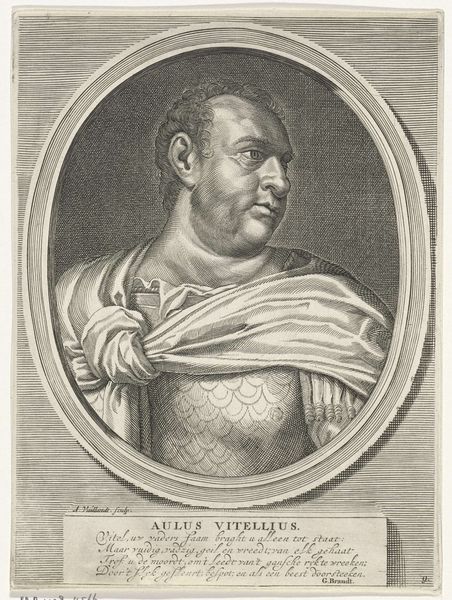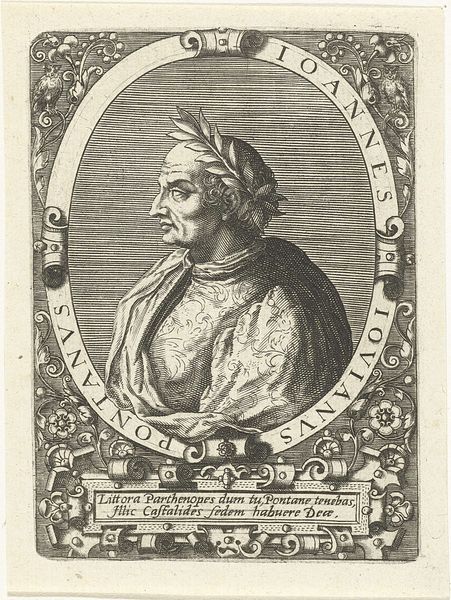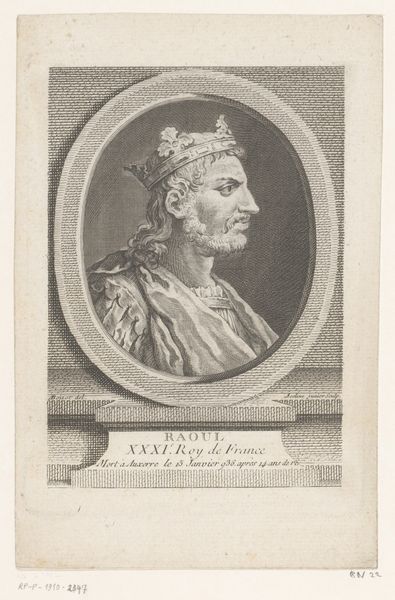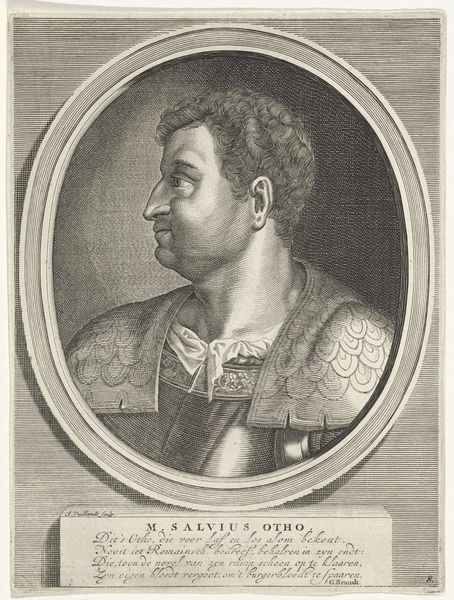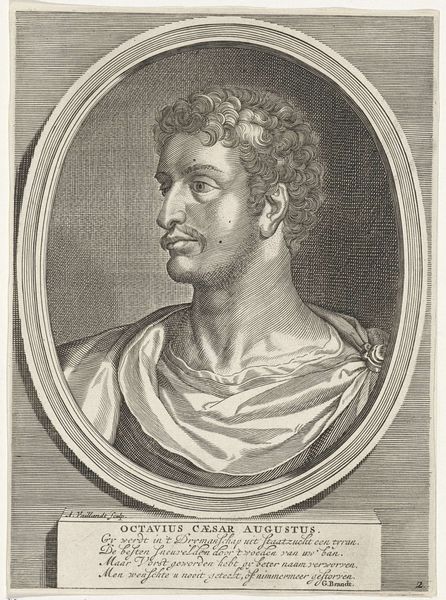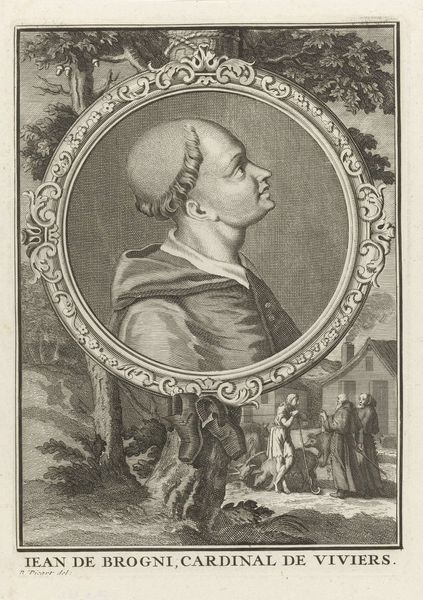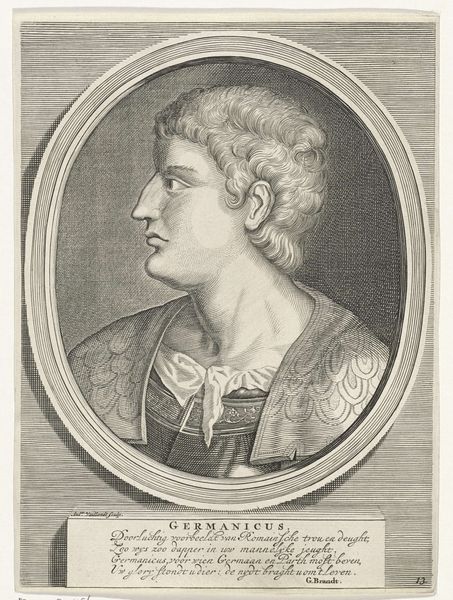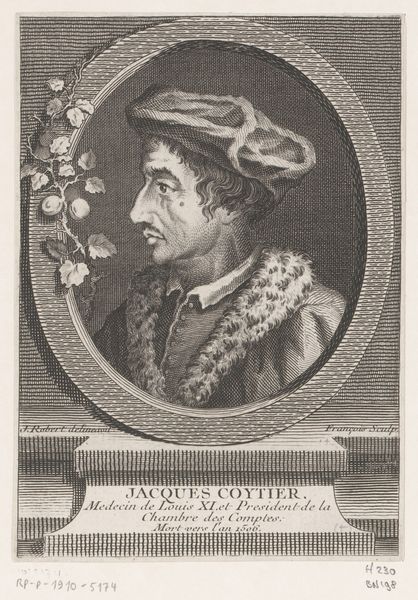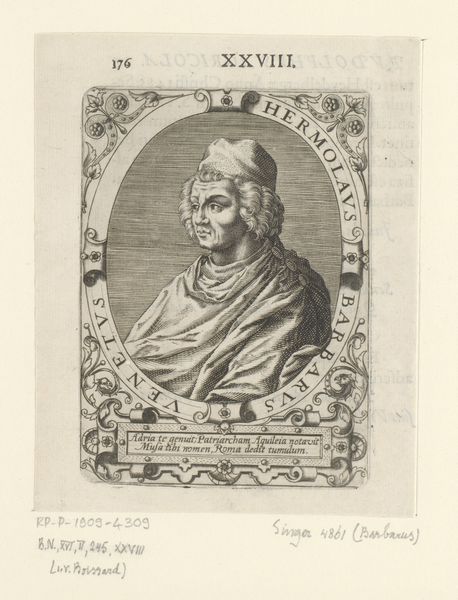
print, engraving
#
portrait
#
baroque
# print
#
ancient-mediterranean
#
portrait drawing
#
history-painting
#
engraving
#
portrait art
Dimensions: height 216 mm, width 160 mm
Copyright: Rijks Museum: Open Domain
Curator: "Titus Flavius Domitianus, Roman Emperor," rendered between 1665 and 1693 by Andries Vaillant, presents us with a compelling study in engraving. The artist masterfully employs line and texture, doesn’t he? Editor: Yes, definitely. The density of the lines really sculpts Domitian's features, especially the shadows around his face. It gives him this sense of... weight, almost gravitas. What stands out to you in terms of its form? Curator: Precisely! Observe the deployment of hatching and cross-hatching to modulate light and shadow, achieving a remarkable three-dimensionality. How would you characterize the use of line in delineating the laurel wreath versus the fabric of his toga? Editor: The wreath has a lighter, almost airy quality. It looks more delicate than the toga, which seems heavier and more draped. I guess that's down to the direction and weight of the lines? Curator: A perceptive observation. Notice also the composition within the oval frame, and how the subject nearly fills the space, creating a sense of contained power. The strategic placement of light and shadow accentuates this tension, doesn't it? Is it all harmonious or is there some element of dissonance? Editor: Hmm, interesting question. There's definitely something slightly unsettling about how the strong light source emphasises his jawline and nose, giving him a formidable and imposing aspect. Curator: It is this interplay of technical mastery and compositional ingenuity which elevates this engraving beyond mere documentation, presenting it as an object of artistic merit. Editor: This was an excellent reminder that we must carefully investigate the technical strategies the artist adopted to establish structure and evoke emotions, too. Thanks! Curator: Indeed, and remember that close observation of form is just one facet of understanding art’s complexities.
Comments
No comments
Be the first to comment and join the conversation on the ultimate creative platform.
